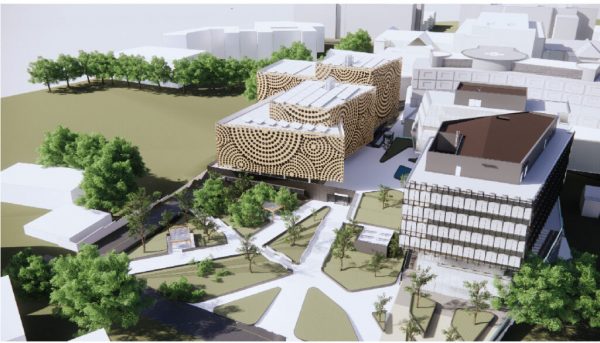Connecting the advanced therapeutics pipeline
Outstanding infrastructure from pathology through to institutions such as the Garvan Institute of Medical Research and The Children’s Hospital at Westmead has created a ‘Silicon Valley effect’ that is attracting foreign investment and international interest.
NSW has long been a world leader in the research and development of novel therapies. Now, through strategic investment by NSW Health and others, the state’s expertise across all stages of the advanced therapeutic pipeline is becoming known around the world. From the early stages of development, through clinical trials, manufacturing of genetic materials and commercialisation, to regulation and policy, NSW possesses the experience, expertise and health research ecosystem to help developers of novel therapies through all parts of the process.
According to Professor David Thomas, Chief Executive Officer of Omico, Australian Genomic Cancer Medicine Centre, the established links in NSW between industry, medical research and clinicians, and outstanding infrastructure from pathology through to institutions such as the Garvan Institute of Medical Research and The Children’s Hospital at Westmead has created a ‘Silicon Valley effect’ that is attracting foreign investment and international interest in conducting clinical trials and research here. “The NSW Government deserves enormous credit for its investments in medical research … and I think it’s paying off in spades to the taxpayer and the community,” he says. “We have to be competitive in this precision medicine space or we lose an enormous opportunity. NSW Health has put its money where its mouth is and it’s reaping the benefits now.”
Over the past 30 years, Australia, and NSW in particular, has built up a sterling reputation for laboratory research in advanced therapeutics, but making that commercially viable after traversing the so-called ‘valley of death’ of phase II–IV clinical trials, has usually required international collaboration. However, NSW Health has invested heavily to bolster this part of the pipeline, with the recent announcements of $96 million for a GMP RNA manufacturing facility and $126 million for a GMP viral vector manufacturing facility that will be the only one of its kind in the region. In addition, the dedicated Office for Health and Medical Research, part of NSW Health, supports research, translation and commercialisation through programs such as the Commercialisation Training Program, Translational Research Grant Scheme and Medical Devices Fund.

Professor Anthony Kelleher, Director of The Kirby Institute at UNSW Sydney, says the whole advanced therapeutic pipeline has been linked in NSW to take advantage of the so-called ‘golden age’ of gene therapy. “It’s all coming together to potentially unveil a suite of novel technologies that will positively impact our prevention and treatment modalities,” he says. “As well as genomics and precision therapeutics, gene therapies and phage therapies, there are now potential RNA technologies that have shown great promise. At the clinical end, our capacity to do phase I trials at very high standards has increased markedly. Similarly, there are now a range of mechanisms to do phase II–IV trials as well. Between the universities and the medical research institutions, there’s a whole range of expertise and a pipeline of discovery.”
Mechanisms are in place to ensure deadlines can be achieved, with more than 90 percent of clinical trials in NSW approved within 60 days of application.
Senior Medical Advisor at the Office for Health and Medical Research, Dr Laura Collie, says various stages of the pipeline require the sort of advanced health care system available in NSW. “From research and development, pre-clinical development, manufacturing, and clinical trials to transferring it into the health care system – once these drugs are approved they’re a lot more complex to put in a clinical service because they’re not just, ‘Here’s a pill, take it,’ but they need everything from infusions, to genetic counsellors and clinical specialists,” she says. “NSW has the full pipeline – people and global organisations can come in and use part of that pipeline, or move their operations here and use all of it.”

Updated 2 years ago